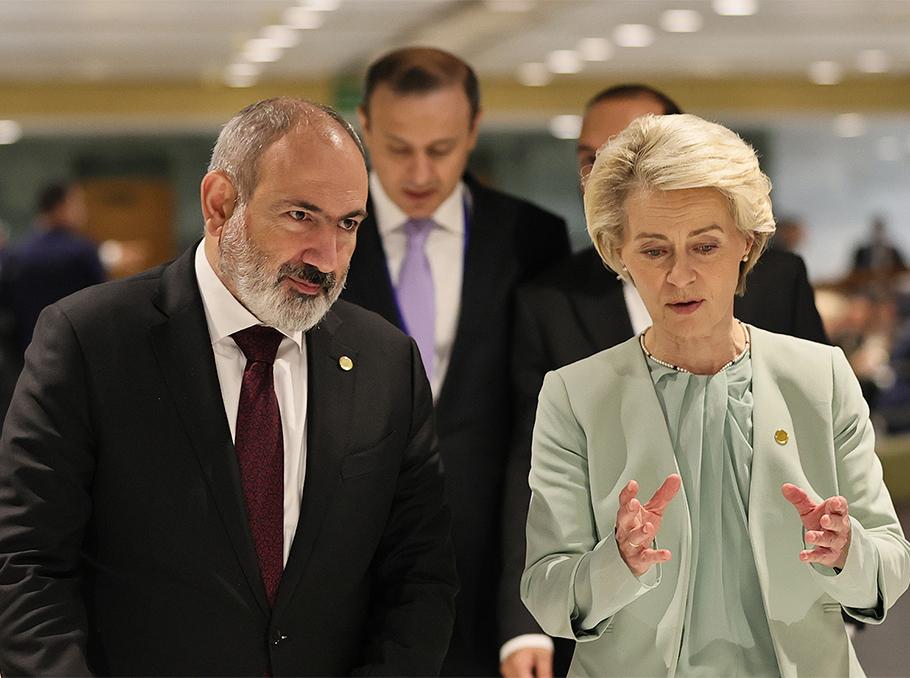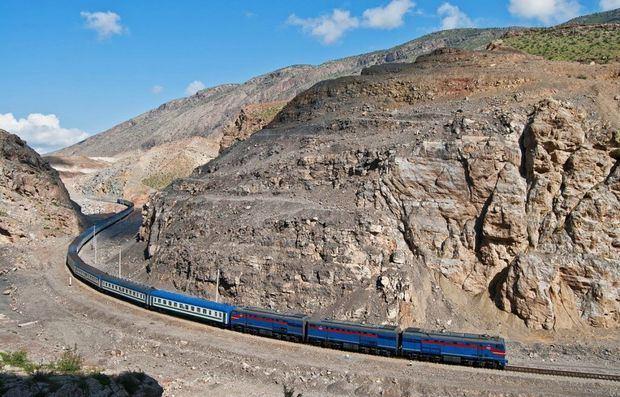Rising tensions in South Caucasus as high-level Armenia summit heralds geopolitical maneuvering Global powerplay unveiled
Armenian Prime Minister Nikol Pashinyan, European Commission President Ursula von der Leyen, and US Secretary of State Antony Blinken are slated to convene on April 5 in Brussels for a crucial trilateral summit.
According to Armen Grigoryan, Secretary of the Security Council of Armenia, the agenda will focus on exploring avenues for trilateral cooperation aimed at bolstering Armenia's development and resilience.
Grigoryan emphasized the significance of the scheduled event in enhancing Armenia's capacity to withstand external pressures and navigate geopolitical challenges. While specific details of the discussions were not disclosed, Grigoryan hinted at a forthcoming opportunity to delve deeper into the agenda's intricacies.
The meeting underscores the strategic importance of Armenia in the broader context of regional dynamics, particularly amidst escalating tensions in the South Caucasus. As Armenia seeks to reinforce its position on the global stage, engagements with key international partners like the European Union and the United States are instrumental in shaping its foreign policy objectives and strengthening its national security architecture, the security secretary alleges.
By fostering trilateral cooperation, Armenia aims to leverage the expertise, resources, and support of its allies to address critical developmental priorities and enhance its resilience against potential threats. The outcome of the summit holds implications not only for Armenia's internal stability and prosperity but also for the broader regional geopolitical landscape.
As geopolitical rivalries intensify and regional dynamics evolve, Armenia's engagement with global powers like the European Union and the United States becomes increasingly pivotal in shaping its future trajectory. The summit represents a crucial opportunity for Armenia to articulate its strategic priorities, strengthen bilateral and multilateral partnerships, and "consolidate its position as a key player in regional affairs".
In the face of complex geopolitical challenges and security threats, Armenia's proactive diplomacy and strategic engagement with international partners are designed to safeguard its national interests and advancing its development agenda. The trilateral summit in Brussels serves as a platform for dialogue, collaboration, and strategic coordination, reaffirming "Armenia's commitment to enhancing its resilience and securing its place in the global arena".
This summit builds upon the foundation laid during a joint statement issued by Prime Minister Pashinyan and President Von der Leyen in Granada on October 5, 2023. During that meeting, President Von der Leyen had announced the preparation of a joint EU-US event to support Armenia. Now, with the scheduled trilateral summit, it appears that plans for this event have progressed, culminating in a high-level gathering aimed at enhancing Armenia's strategic partnerships and addressing its developmental challenges.

The significance of this summit extends beyond mere diplomatic protocols; it underscores the strategic convergence of interests between Armenia, the European Union, and the United States in promoting stability and prosperity in the region. By convening at this level, the parties involved signal their commitment to advancing Armenia's development agenda and strengthening its resilience in the face of evolving geopolitical dynamics.
The timing of the summit is particularly noteworthy, occurring amidst heightened tensions and shifting alliances in the South Caucasus region. Against this backdrop, Armenia's engagement with key international partners assumes added significance, offering a pathway for navigating complex geopolitical challenges and charting a course towards sustainable growth and stability.
While specific details of the agenda have not been disclosed, it is expected that discussions will encompass a range of strategic priorities, including economic cooperation, security partnerships, and regional integration initiatives. The outcome of the summit holds the potential to shape Armenia's trajectory in the coming years, influencing its diplomatic alignments, strategic partnerships, and developmental priorities.
As Armenia seeks to strengthen its position on the global stage and navigate the complexities of regional geopolitics, engagements such as the trilateral summit in Brussels serve as crucial forums for dialogue, collaboration, and strategic coordination. Through concerted efforts and meaningful partnerships, Armenia aims to enhance its resilience, promote inclusive growth, and secure its rightful place in the community of nations.
The upcoming April 5 tripartite meeting in Brussels signals a significant focus on Armenia's security and developments amidst ongoing global conflicts.
Recent statements and actions by Western institutions indicate a growing interest in the South Caucasus as a geopolitical hotspot, possibly paving the way for increased competition and conflicts between major powers in the region. Reports of potential security pacts between the US, EU, and Armenia mirror similar agreements signed with Ukraine, signalling a concerted effort to influence regional dynamics.
Armenia's alignment with the Collective Security Treaty Organization (CSTO) and its recent ratification of agreements with the European Union suggest a balancing act between Russia and the West. This strategic maneuvering could lead to expanded Western influence in Armenia, potentially impacting regional security arrangements and exacerbating tensions with neighboring Azerbaijan.
France's involvement in arming Armenia and its strategic interests in the region, particularly regarding the Zangazur Corridor, underscores the complex geopolitical dynamics at play. The Zangazur Corridor serves as a crucial link between East and West, making it a focal point for regional power struggles involving France, India, the US, and other major players.

The potential deployment of French military forces in Armenia, coupled with ongoing intelligence activities by Western powers in the region, raises concerns about increased militarization and instability in the South Caucasus. This could further strain relations between Armenia and Azerbaijan, potentially leading to renewed conflicts.
Armenia's evolving foreign policy, particularly its pursuit of closer ties with the West, has implications for regional stability and security. While Armenia seeks to assert its sovereignty and pursue its national interests, it risks becoming a pawn in the geopolitical games of major powers, potentially leading to further conflict and instability in the South Caucasus.
In conclusion, the upcoming meeting between Blinken, Von der Leyen, and Pashinyan underscores the strategic importance of Armenia in the broader geopolitical landscape. However, Armenia's delicate balancing act between Russia and the West, coupled with escalating tensions in the region, raises concerns about the potential for increased conflict and instability in the South Caucasus.








